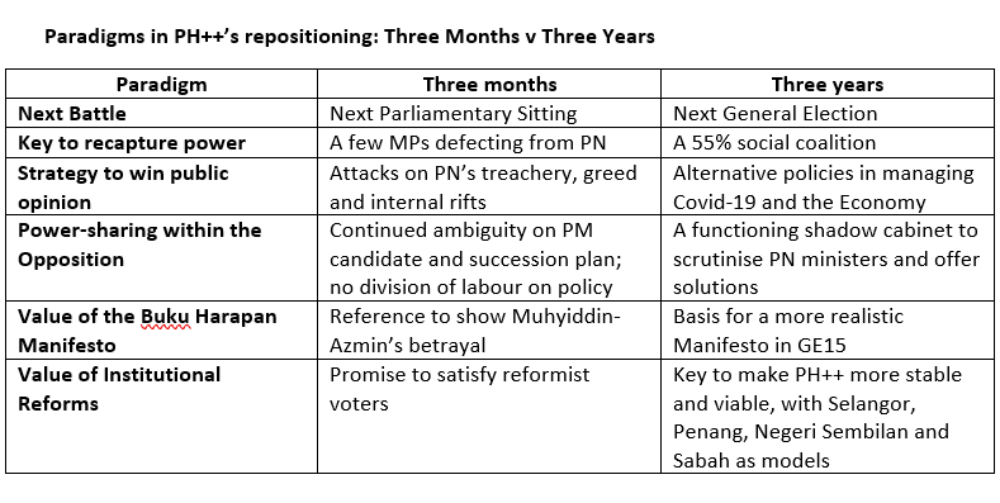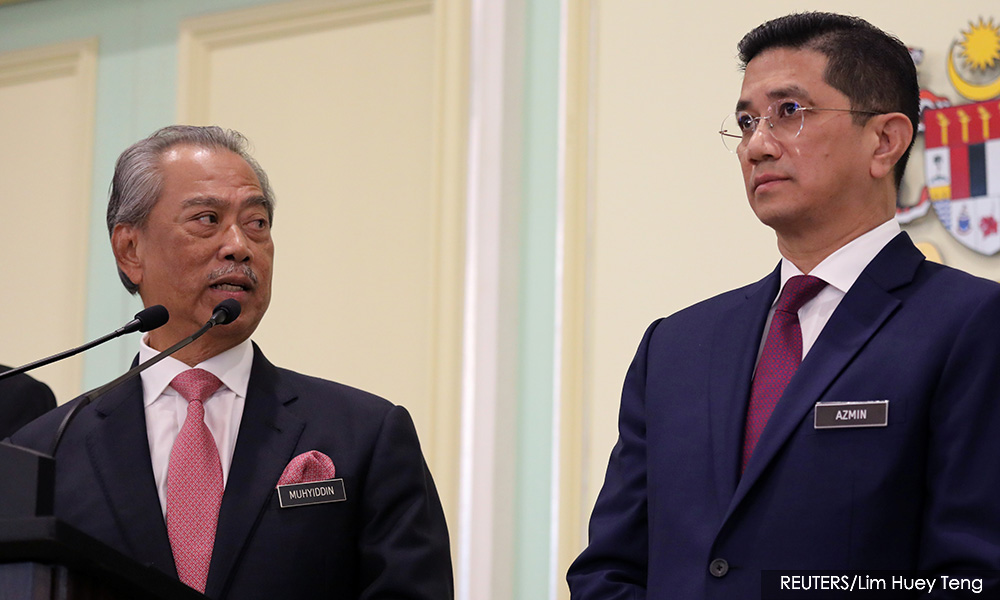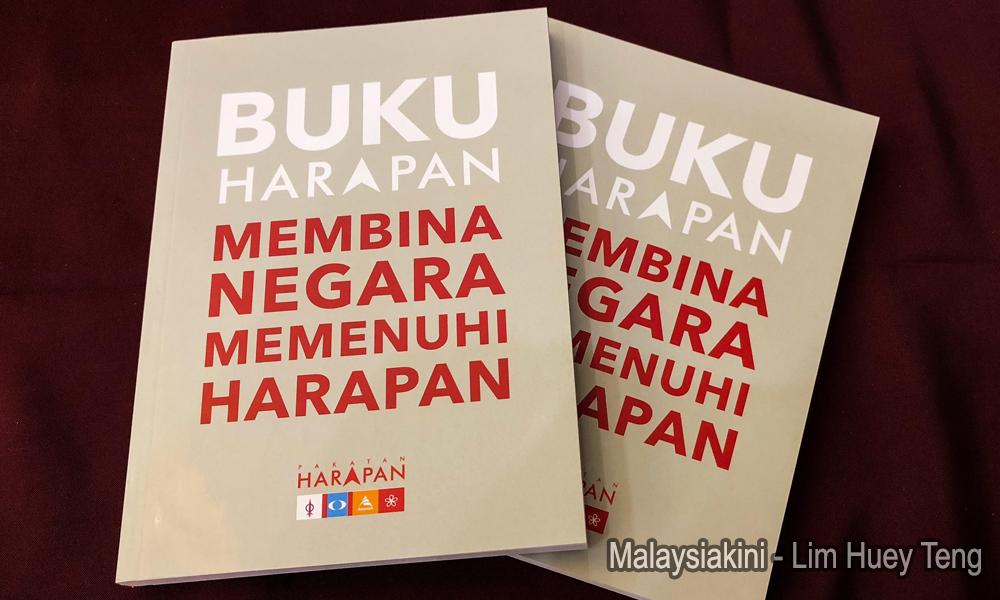COMMENT | So, the one-day Parliament came and ended with only 90 minutes of the King’s speech.
Former prime minister Dr Mahathir Mohamad’s motion of no-confidence against Prime Minister Muhyiddin Yassin is principally right because it will test if Muhyiddin has misled His Majesty the Yang di-Pertuan Agong on his majority.
But what has happened since this move?
- Three richer MPs: Richard Riot as a special envoy, Mahdzir Khalid as TNB boss and Tajuddin Abdul Rahman as Prasarana boss.
- The collapse of Pakatan Harapan's Kedah state government.
- The dismissal of film producer Riza Aziz for money laundering.
- Perikatan National moving towards formalisation.
Harapan, Mahathir’s bloc and Warisan are also making up. But do they have a three-year plan or just a three-month plan in repositioning themselves?
By three years and three months, I mean the time from now to GE15 if there is no early dissolution and the time from February 24 to May 18. Metaphorically, they can represent two paradigms (see table below).

Most of the points in the table need no explanation. I will elaborate on only four points: a 55 percent social coalition, shadow cabinet, manifesto for GE15 and benefits of institutional reform to a better "PH++".
A 55 percent social coalition
A social coalition is the medley of voters who rally behind a party or a political coalition. Different groups in a social coalition do not always want the same things but they accommodate one another to put their party/coalition in power to give them as many as possible the things they separately want.
In the US, the Democratic Party’s social coalition includes the liberals, ethnic minorities, women and until US President Donald Trump, the white working-class, while the Republicans’ social coalition comprises the conservatives who want more religion in public life, less tax, the right to own guns and, before Trump, to “defend the free world”.
In GE14, the 122 or 55 percent of seats (including Batu) won by Harapan and Warisan came from 49 percent of the votes cast. Harapan came into power because BN’s 34 percent electorate and PAS’ 17 percent were split and punished by our first-past-the-post (FPTP) electoral system.

Of the 31 MPs who defected from Harapan to Perikatan Nasional, former PKR deputy president Azmin Ali’s “Gang of 10” have been rejected by most of their constituents who remain in Harapan's social coalition.
Of Muhyiddin’s “Gang of 21”, 13 were originally from Umno and their voters are likely supportive of their re-defection to form PN, while only eight were originally elected on the Harapan ticket, and their supporters may be split.
Across all other constituencies, some voters who switched from Umno/PAS to Bersatu would be happy to see Bersatu teaming up with Umno and PAS.
All in all, discounting eight million new voters due to join the electoral roll next year and those Harapan supporters who are too disappointed to vote, Harapan's social coalition may have shrunk to perhaps only 40 percent now.
There are two ways for Harapan to win GE15.
First, push its support to near 50 percent and count on the FPTP system to deliver a manufactured majority, as in GE14. This is both unlikely with Umno/PAS putting up a straight fight and vulnerable to post-election defections.
Second, form a majority social coalition of 55 percent, which should be big enough to prevent a manufactured majority for their opponents who benefit from malapportionment and gerrymandering of constituencies – like how former pr9ime minister Najib Abdul Razak won 60 percent of the parliamentary seats with 47 percent of votes in 2013 – and deter defections.
Shadow cabinet
A shadow cabinet would prepare PH++ leaders to be ministers when they come back to power. Inexperienced ministers lamented by Mahathir were partly the product of Harapan having no shadow ministers from 2008 to 2018. Yes, 10 years wasted despite it having 80 over MPs and the ambition to govern.
PH++ dislikes the idea of a shadow cabinet for three reasons. First, they have to make explicit the allocation of portfolios – including the post of prime minister – among the component parties, and they will be attacked for the marginalisation of this party or that community.
Second, their MPs who do not get picked as shadow ministers may be disappointed and defect. Third, they cannot make free promises of ministership for potential defectors to PN as they did to voters in certain constituencies in GE14.
Exactly because of the first two points, PH++ should do it so that they can be immune to those attacks and cracks when they come into power. The last consideration, of course, belongs to the three-month paradigm.
Manifesto for GE15
Harapan's Buku Harapan was the work of five men: one leader from each of the four component parties, and Wan Saiful Wan Jan, who consolidated the ideas into a coherent document.
The manifesto was accepted in a rush by Harapan top leaders who were more eager to promise than be prudent on delivery. This came back to haunt the coalition on both non-communal but expensive promises (on PTPTN, toll and petrol price) and the communally sensitive ones (ICERD, UEC, etc).
PH++ will alienate reformist voters if it offers no concrete reforms in GE15 and will get into the same trouble if it just recycles Buku Harapan.

It should start to work on its GE15 manifesto now. This time, it should be led by its shadow ministers and engage opinion leaders from its social coalition through extensive consultation. Policy compromises need to happen at the societal level, not just among the top leaders.
Benefits of institutional reforms to PH++
Harapan leaders largely treat institutional reforms as obligations to reformist voters and not see how institutional reforms – especially those that would professionalise politics – can truly benefit them.
With the lack of self-interest motivation, Harapan reforms always appear half-hearted. For example, it gave constituency allocation to opposition MPs but only one-fifth of what Harapan parliamentarians got.
It set up 10 parliamentary special select committees but left 82 non-government MPs (RM1,312,000 in monthly allowance) without committee responsibility and under-utilised. Because being in power drew private donations, Harapan was not keen to introduce public funding for political parties.
Now that they have lost power, what they didn’t do has come back to haunt them. Constituency allocations were held back for their MPs. Select committees may be undone.
Harapan should see institutional reforms with a more genuine, self-interested lens. Selangor, Penang, Negeri Sembilan and Sabah should be the model states.
They can start by making Parliament real. Muhyiddin pretends that Zoom (a video conferencing tool) does not exist and Malaysia is living in the 14th Century.
Harapan can expose Muhyiddin’s "emperor’s new clothes" by debating the King’s speech and moving the motion of thanks on Zoom. Their eight special select committee chairpersons should likewise conduct their committee meetings and public hearings on Zoom.
Gamble or investment?
The difference between a three-month war plan and a three-year one is really one between a gamble and an investment. I am sure Harapan leaders know what I mean.
WONG CHIN HUAT is an Essex-trained political scientist working on political institutions and group conflicts. He currently leads the clusters on electoral system and constituency delimitation in the government’s Electoral Reform Committee (ERC). Mindful of humans’ self-interest motivation while pursuing a better world, he is a principled opportunist.
The views expressed here are those of the author/contributor and do not necessarily represent the views of Malaysiakini.

